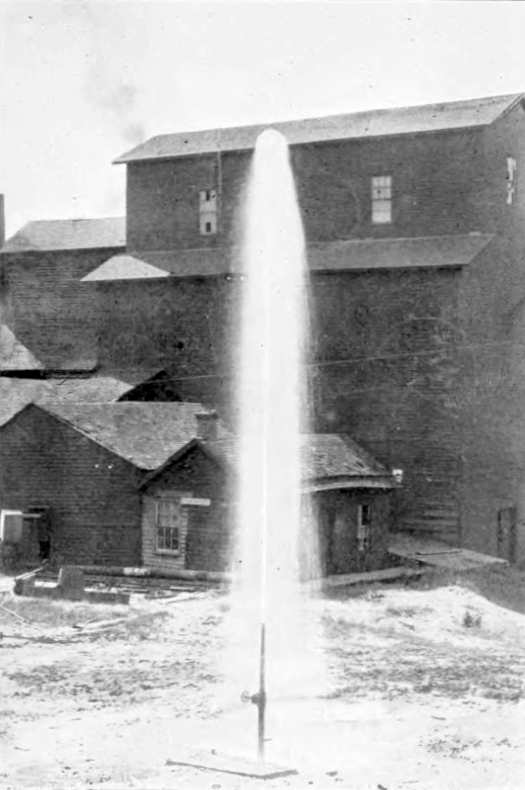History of Iowa From the Earliest Times to the Beginning of the Twentieth Century/3/Counties/Benton
BENTON COUNTY was created by act of the Legislature of Wisconsin Territory in 1837 and embraced at that time all of the territory between its northern and southern lines west to the Missouri River and was attached to Jackson County temporarily. It was named for Thomas H. Benton who was for thirty years United States Senator from Missouri. In November, 1840, Benton County was attached to Linn and in February, 1843, was reduced in size to its present limits, containing twenty congressional townships, making seven hundred twenty square miles.
The first pioneers who made homes in the county were James Scott and Samuel Lockhart who, in the spring of 1839, took claims near where the village of Marysville stands. Several families from Indiana soon settled in that vicinity and the place was known as “Hoosier Point.” The same year Samuel Parker made a claim embracing a body of timber which was called “Parker’s Grove.” Gilman Clark located a mile east of where Shellsburg stands and L. F. North, John Smith and George Wright settled in the vicinity during the year, opening farms.
The county was organized in May, 1846, and the county-seat located where a new town named Fremont was laid out. A log court-house was erected two stories in height. The name of the town was afterwards changed to Vinton, in honor of Plynn Vinton, a member of Congress from Ohio, who paid fifty dollars for the honor. A portion of the county on the east side was embraced in the “Black Hawk Purchase” and was therefore opened to settlement several years before the remainder. The early settlements were made on this strip, which was on the extreme frontier, by a band of desperadoes who found shelter in the Indian country beyond, and preyed upon the property of the pioneers for several years. It was impossible to arrest and punish these thieves and murderers and finally the settlers organized a “vigilance committee,” hunted them down and by lynch law rid the county of them.
The first election was held in August, 1843, when the county was attached to Linn. The first officers were chosen at an election held at Parker’s Grove in 1846, when twenty-nine votes were polled. James Mitchell was chosen county judge, John Royal sheriff, and David Pratt clerk. The first court was held in May, 1847, at the house of Thomas Way at which Judge J. P. Carlton presided. Among the attorneys present were Norman W. Isbel, I. M. Preston and D. P. Palmer. A school was opened near Marysville and a saw mill built on Mud Creek soon after the first settlers erected their log cabins. In October, 1846, a post-office was established at Vinton with Stephen Holcomb as postmaster. In early days a fine grove of red cedars stood on the banks of the Cedar River but a vandal squatter named Thompson cut them down and sold the logs down the river. A few years later several similar groves were destroyed in like manner. It was from these and other groves that the Cedar River derived its name.
The first newspaper in the county was established in January, 1855, by Frederick Lyman and S. C. Foster and named the Vinton Eagle. The Presbyterians organized the first church at Vinton in 1852, with Rev. John Summerson as pastor. In 1858 Thomas Drummond the young editor of the Vinton Eagle was a member of the Legislature and secured the passage of an act locating the Asylum for the Blind at Vinton. In 1861 the town of Belle Plaine was laid out on the line of the Chicago, Iowa and Nebraska Railroad which had just been extended through the southern part of the county. Another town was also laid out on this line the same year, named Blairstown, for John I. Blair, who was the president of the construction company.
In 1854 Jacob Cantonwine laid out a town on Bear Creek which was named Shellsburg for a city in Pennsylvania. Norway was laid out in 1863 on the line of the Northwestern Railroad and this named at the request of Osborn Tuttle who gave five acres of land to the railroad company. Benton County is well watered by the Cedar and Iowa rivers and their tributaries which furnish water power in many places. Native timber is found along the streams and the prairie soil is of the best quality. Building stone is quite abundant along the Cedar River and granite boulders are found in many sections of the county.
